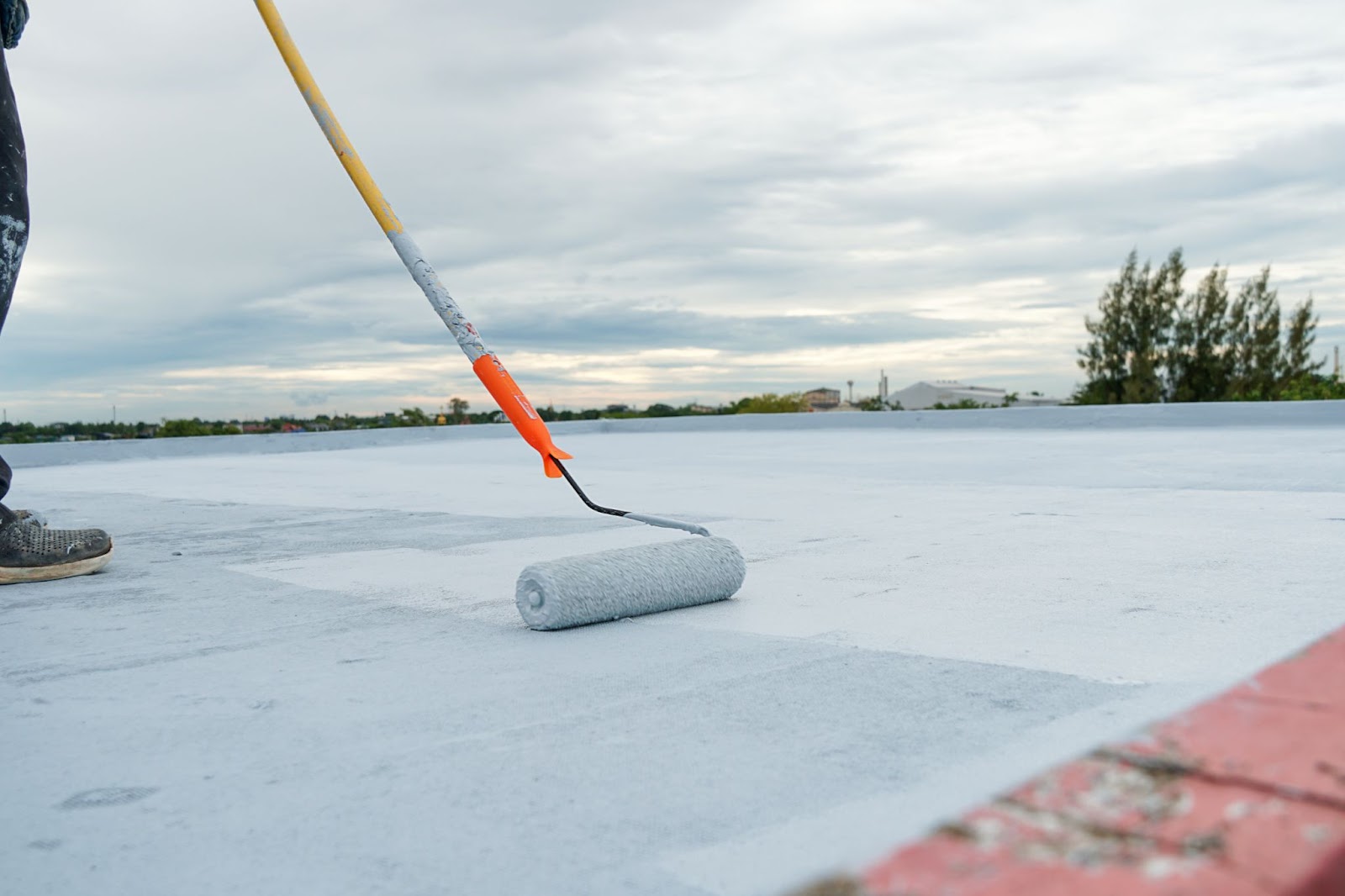
HOW TO CHOOSE THE RIGHT ROOF COATING FOR YOUR JOB
INTRODUCTION
There are plenty of manufacturers and options for roof coatings (recent supply chain issues notwithstanding). Thankfully, Rugged Coatings continues to successfully supply contractors with the coatings they need quickly and with top-notch support—even while the rest of the industry struggles to fulfill orders on time!
Let’s explore which coating is best for your application, however. Sorting and sifting through the different options can be confusing, especially with the alphabet soup manufacturers use to name their products.
WHAT ARE THE OPTIONS IN ROOF COATINGS MATERIALS?
Let’s look at three general categories of spray roof coatings: acrylic, silicone, and polyurethane. [GU1]
ACRYLIC ROOF COATINGS
Acrylic roof coatings (like Rugged Coatings’ acrylics) are water-based coatings. Acrylics are easy to install and relatively friendly for the environment as well. Building owners will enjoy the (typically) inexpensive material costs, but it is essential to note that acrylic coatings require more material applied than other materials to be effective.
Acrylic coatings don’t provide significant elastic properties, especially compared to other options on this list. Acrylics are susceptible to damage from wide temperature swings. Acrylic coatings also are not the best option for roofs with foot traffic or ponding water. But they are inexpensive, so you’ll need to weigh a life-cost analysis, comparing how long the coating will last and then need to be replaced, against the cost savings.
Not all acrylics are created the same, however! Rugged Acrylics have a service life exceeding 14 years, so check the real-world and anticipated service life of the coatings you choose!
SILICONE ROOF COATINGS
Silicone roof coatings can provide better elasticity than acrylics, which can be suitable for the swing in a building’s temperatures and settling on existing and new installations.
Silicone coatings often experience quite a bit of dirt pickup and can be less durable than acrylics. Silicone coatings can withstand pressure washing but will undoubtedly get dirty between cleanings. Many applicators choose to mix in or apply granules when applying silicone roof coatings to increase the durability of the coating. [GU2]
Silicone roof coatings can also withstand ponding water — a significant need for most commercial roof coatings and a large differentiator from acrylic coatings. Acrylic coatings will break down under ponding water.
POLYURETHANE ROOF COATINGS
Polyurethane coatings, typically in the form of Spray Polyurethane Foam (SPF), are becoming more and more common in the roofing industry. And with good reason, too!
Spray Polyurethane Roof coatings are highly flexible and forgiving. SPF roofs can handle vast temperature ranges and plenty of ponding water. The downside to SPF roofs on their own is their poor resistance to UV light. Exposure to direct sunlight causes SPF to be yellow and chalk over time.
SO, WHAT’S THE BEST OPTION FOR ROOF COATING?
The most robust option for your roof is a combination of an SPF coating and a protective coating of either acrylic or silicone. That’s precisely what makes up the Rugged Roofing System. It’s a combination of Accufoam® roofing foam and Rugged Coatings’ Acrylic or silicone. It’s the best of both worlds and yields an excellent life span.
CONCLUSION
In the end, there’s plenty to consider in roof coatings. The amount of sunlight, temperature, climate, and intended life span should all factor in your choice of coating. Suppose durability and best value are essential to you. In that case, the Rugged Roofing system is the best in the industry, combining [GU3] [GU4] the leading elastomeric roof coatings with industry-leading SPF roof foam. Find out today why Rugged is the most substantial coating you can get for your roof!


